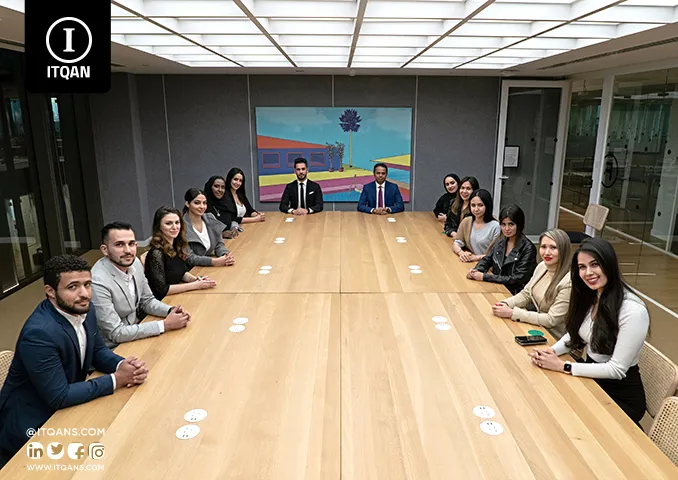Business Setup UAE: Licensing Made Easy for GCC Business Owners in Dubai
Starting a company in the UAE can be a rewarding venture—especially for GCC nationals looking to expand their business footprint. Business setup UAE is now more streamlined than ever, with licensing processes simplified significantly to attract foreign investment and regional entrepreneurs. This guide outlines everything you need to know to successfully secure a business license in Dubai.
Why Dubai is Ideal for GCC Entrepreneurs
Dubai offers one of the most business-friendly environments in the Middle East. Low taxation, world-class infrastructure, political stability, and ease of doing business make it a prime location for investors from GCC countries. The regulatory framework is continuously evolving to promote efficiency and attract international capital.
Key Steps for Business Setup in UAE
Before launching your company, it’s essential to understand the pivotal steps involved in the licensing process. These steps ensure your venture operates legally and benefits from Dubai’s business ecosystem.
1. Choose Your Legal Structure
Your legal structure determines how you will conduct your business. GCC nationals have some flexibility here, and the most common structures include:
- Sole Proprietorship
- Limited Liability Company (LLC)
- Branch of a Foreign Company
- Free Zone Company
Each structure has unique implications in terms of ownership, tax liabilities, and operational scope.
2. Select the Right Licensing Authority
The licensing body you choose depends on the business jurisdiction:
- Mainland: Department of Economy and Tourism (DET)
- Free Zones: Different zones have distinct authorities, such as DMCC, JAFZA, DAFZA
Generally, mainland businesses can operate anywhere in the UAE, but free zone entities may face some operational restrictions.
3. Determine Your Business Activity
This is crucial for obtaining the correct license type. Examples of license types include:
- Commercial License
- Industrial License
- Professional License
Careful selection of your business activity aligns your operations with regulatory compliance.
4. Secure Initial Approval
GCC nationals must submit relevant documents to obtain initial approval. These include a passport copy, national ID, business plan, and proposed trade name. Once approved, you can move on to leasing office space and finalizing licensing procedures.
5. Reserve a Trade Name
Your business name should comply with UAE regulations and reflect your brand identity. Avoid using offensive terms or names already taken.
6. Lease a Workspace
For mainland companies, acquiring an Ejari (tenancy contract) is mandatory. Free zones offer flexi-desks, shared offices, and warehouses based on the business type.
7. Finalize and Obtain License
Once you’ve submitted all required documents along with Ejari and approvals, your trade license will be issued, typically within a few days.
Types of Licenses for GCC Business Owners
Here are the most common license categories suitable for GCC nationals:
- Commercial License: Suitable for trading businesses such as import/export, retail, and general trading.
- Professional License: Required for consultancy, advisory, and service-based businesses.
- Industrial License: For manufacturing and production businesses.
Entrepreneurs can also explore licenses such as e-commerce, freelance, or tourism, depending on the business activity.
Benefits of Business Setup UAE for GCC Nationals
There are several advantages to launching a business in Dubai for GCC entrepreneurs, including:
- 100% ownership without the need for a local sponsor (in many sectors)
- Fast-track licensing procedures
- Tax incentives including 0% corporate tax in certain free zones
- Access to international markets via strategic logistics hubs
Costs Involved in Obtaining a Trade License
Licensing fees vary based on jurisdiction, license type, and business activity. Here are some rough estimates:
- Mainland License: AED 10,000 to AED 25,000 annually
- Free Zone License: AED 12,000 to AED 50,000 depending on the zone
There are also additional charges, including office rent, visa costs, and administrative fees.
If you’re planning your budget, don’t miss our complete cost guide: Cost Breakdown: How Much Does It Cost to Obtain a Trade License in Dubai?
Free Zone vs Mainland: Which is Right for You?
Choosing between a free zone and mainland depends on your strategic objectives.
| Feature | Free Zone | Mainland |
|---|---|---|
| Ownership | 100% foreign ownership | Up to 100%, depending on activity |
| Operational Scope | Limited to free zone or export | Anywhere in UAE |
| Tax | Often exempt from corporate tax | Subject to UAE tax laws |
Evaluate your business model to determine the best jurisdiction.
Common Licensing Mistakes to Avoid
Even experienced entrepreneurs make mistakes during licensing. Common pitfalls include:
- Choosing incorrect business activity
- Not understanding visa quota limits
- Underestimating total costs
- Ignoring renewal or compliance deadlines
Learn more in our detailed guide: Common Mistakes to Avoid When Opening a Business in Dubai
Renewing Your Trade License
Trade licenses in Dubai must be renewed annually. Missing renewal deadlines can result in heavy fines or business suspension. Renewal normally involves:
- Providing updated Ejari for physical office
- Paying renewal fees
- Clearing outstanding payments, fines, or violations
Check our complete guide on Fastest Ways to Renew a Trade License in Dubai Without Delays.
Useful Government Support Channels
GCC nationals can leverage several digital portals for smoother licensing and compliance:
- UAE Government Portal – Centralized information for business owners
- Dubai Now App – Renew licenses and track applications
- DED’s official website – Register and manage mainland businesses
Conclusion
With the right guidance, business setup UAE can be straightforward and cost-efficient for GCC entrepreneurs. Whether you’re launching a retail store, consulting firm, tech startup, or trading company, Dubai provides a solid foundation for growth. By understanding the licensing process and avoiding common mistakes, you can focus on building a successful and compliant business in the UAE.








